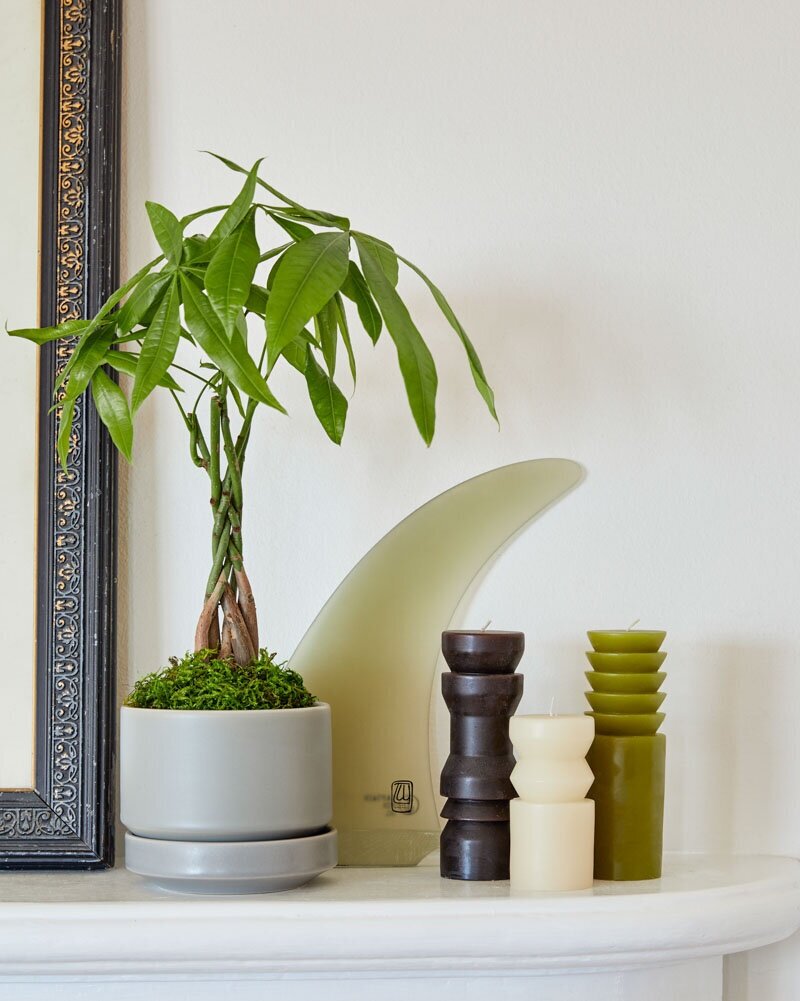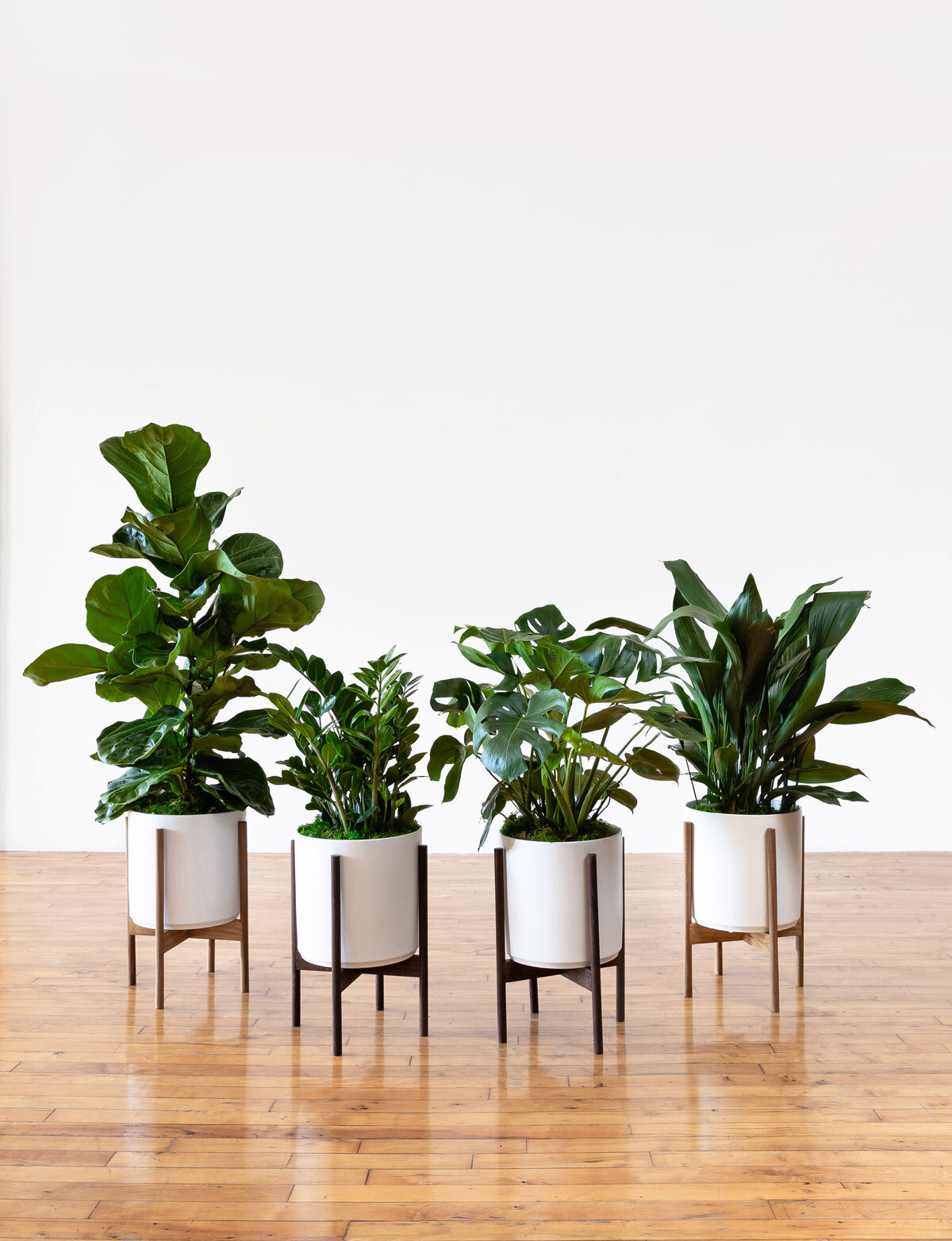Dear Plant Stylist: "What Are The Best Plants For Feng Shui?"
In our Dear Plant Stylist series, we share styling and lighting inquiries received by our in-house stylists with our audience. So read on-- you just might find that your plant styling questions are answered below!
—
Dear Plant Stylist,
I’m interested in incorporating feng shui into the way I style my home, because I want to make it as tranquil as possible- a sanctuary to return to after work. What plants are best for feng shui and how should they be positioned according to the feng shui tradition?
Thanks for your help,
J.V.
Dear J.,
Feng shui is such an interesting practice. It can be explored very deeply, but it’s also simple to understand the basic tenets and allow them to guide your choices for greenery and the way you place plants in your home.
Maximizing the tranquility and energy of your home is a worthy pursuit. And it’s different than the way you’d organize a workspace: home is about relaxing, feeling entirely yourself and recharging your spirit.
I’m going to start by sharing an assortment of plants that are among the most feng shui friendly. Be sure to double check that the light your space receives will be appropriate for the plants you choose (you can reference our light requirements guide for support).
Best Houseplants for Feng Shui:
Braided Money Tree
It may not be surprising that a plant called a Money Tree is considered to be a bringer of prosperity, but did you know that they are also powerful air purifiers? Braided Money Trees are traditionally believed to capture luck in their braids- but their canopies also capture airborne pollutants, and transform them into clean, beneficial oxygen! In traditional feng shui, they are recommended for placement in wealth or health areas. But we think that Braided Money Trees belong anywhere and everywhere- their flexible preference for medium to bright indirect light means that they can thrive in many different spots.
Unsurprisingly, the Braided Money Tree is one of the most common plants in the teachings of feng shui.
The Snake Plant
Another incredible air purifying plant, the Snake Plant is a feng shui mainstay. In feng shui, it is beloved for its role as protector, and is recommended for placement by doors (especially front doors) and in pairs. It is not traditionally recommended for bedrooms. Snake Plants are exceptionally low-maintenance, require little water to thrive, and are appreciative of all light levels, but prefer not to be scorched by direct sun.
Philodendron Brasil
Health is wealth! And the feng-shui favorite Philodendron Brasil addresses both, with a reputation for encouraging both monetary prosperity and physical wellness. A bedroom superstar, Philodendron Brasils are ideal for tranquil spaces. Per feng shui tradition, rooms in the southeast or east areas of your home are ideal.
Cascading Pothos
Pothos varieties are gorgeous and invigorating. In feng shui tradition, stale energy can gather on cabinet tops and in high corners, restricting the home’s overall positive energy. Pothos plants are the perfect way to alleviate this. Place a pothos on a high cabinet or shelf, or suspend it in a basket or macrame hanger, and allow its foliage to grow in cascading tendrils. This easy-care plant will thrive with medium, indirect light, and you can enjoy its misting and watering routine weekly.
The entryway deserves special attention in feng shui, and is a great place to add greenery. Pictured here: Monstera Deliciosa, Braided Money Tree, and Zanzibar Gem
More Thoughts on Placement:
When it comes to our homes, we are each the captain of our own ship, and it can be fun and gratifying to intuit for ourselves where we’d like to place our plants. But the feng shui tradition has quite a bit to say on this, the general gist of it being:
As soon as you enter your home, you are in the mouth of chi. That means that your front entryway is where chi (energy) enters your home. This area should receive special attention and focus, and is a good place to showcase your most beautiful plants.
General entryways, your living room and dining room are also key areas in your home to focus on. They tend to receive the most varied light and set the scene for your home’s energy overall.
Dying plants are not good for feng shui. Ensure that you choose plants you can care for, and that are a fit for the lighting your space receives.
Feng shui is an ancient (dating back to 4000 BC or earlier) and complex traditional practice. There is so much one can learn about it, and myriad applications for its wisdom. If you’d like more information, consider learning your home’s feng shui bagua, or energy map. You can also read more about the significance of the five elements (wood, fire, earth, metal and water) of feng shui. But to begin, consider the basics: placing healthy plants with auspicious connotations in the most frequently loved and used areas of your home.
Easy Care Plants, Delivered
Beautifully potted plants, plus lifetime plant care support. Order online at leonandgeorge.com



